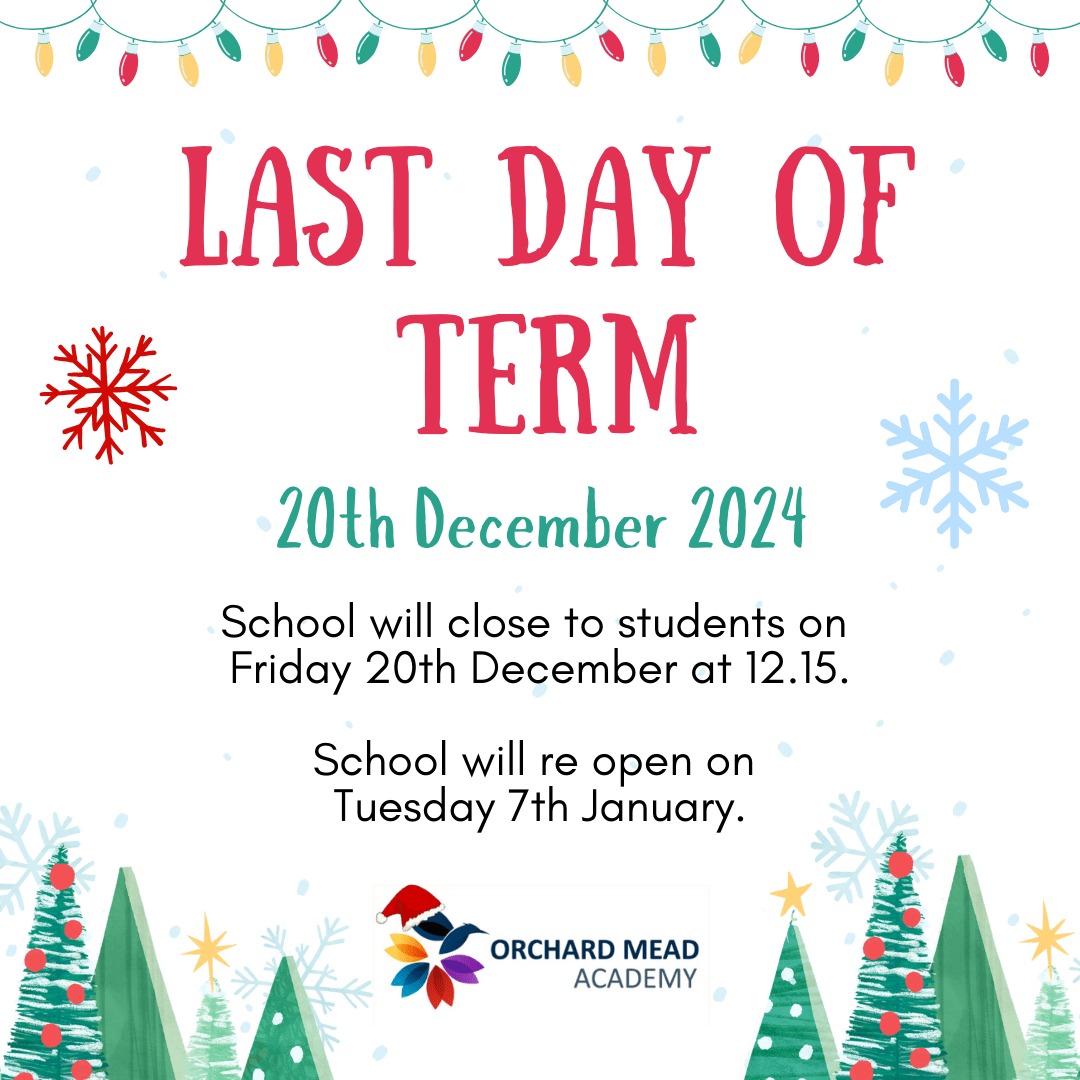History is a core curriculum subject, studied by all pupils in Key Stage 3 at Orchard Mead Academy.
Students at Orchard Mead Academy study either Geography or History for GCSE during Years 10 and 11.
Key Stage Three
At KS3, students follow a chronological curriculum to embed an awareness of change over time, and to create sustained links between periods. Students study one topic per half term.
| Autumn Term | Spring Term | Summer Term | |
| Year 7 | Who made Britain home?
– The misconception of a homogenous ‘British’ race is challenged as students encounter diverse groups who made Britain their home. Beginning with Britannia as a Roman colony, through to the Dark Ages, the Angles and Saxons, Vikings, ending with the Norman invasion and its impact. |
What was daily life like in the medieval era?
– Various aspects of medieval life are studied, including villages, crime, punishment and medicine, with students discovering the vital role of the Church in each. This begins their schema on religion, which provides a basis for later KS3 and KS4 units of work. |
Was Tudor England a ‘Golden Age’?
– The Tudor monarchs and their impacts on church and state are studied, from Henry VII to Elizabeth I, as well as ‘history from below’. Tudor society is examined from a variety of angles, e.g., its multiculturalism, religious tensions, culture, and education, and hierarchy. Links to GCSE depth study. |
| Year 8 | How did the monarchy change in the c17th?
– Conflict of various kinds is explored through the English Civil War, problematising the Divine Right of Kings and introducing student to key concepts of parliament and democracy. Students encounter Oliver Cromwell and his influence on politics and religion. |
How did colonialism change the world?
– Origins and examples of British imperialism are explored, from Virginia to penal Australia, interwoven with a study of the transatlantic slave trade to exhibit our close ties to colonial exploitation. |
Was it an industrious or industrial revolution?
– Factories grow and Britain is urbanised, as the nature of political power and thought is changed. The backdrop of technological advancement contextualises radical changes for all classes of society. |
| Year 9 | What was the most significant event of the early c20th?
– Titanic, WW1, Suffrage, the origins of the welfare state, Spanish influenza, the Russian Revolution… but what had the greatest impact? Students are encouraged to draw links across topics to get a thorough picture of the period |
Why did the Holocaust happen?
– Students are introduced to Nazi policy and methods of control to contextualise the atrocities of the holocaust. Students encounter examples of antisemitism from across time to deconstruct the misconception that the Nazis created this as a new idea. (compulsory topic) |
How far did life change for black Americans in the 1960s?
– Students evaluate a range of watershed moments in the Civil Rights movement, as well as encountering challenging topics of white supremacy then and now, in order to assess the relative success of the Civil Rights movement overall. As the last unit in KS3, this requires a mature and sophisticated approach to source material. |
Key Stage Four
Students follow the Pearson Edexcel History GCSE specification.
Paper 1: Thematic study and Historic Environment: Crime and Punishment, c1000-present and Whitechapel, c1870-1900: crime, policing and the inner city
Paper 2: Period Study: Superpower relations and the Cold War, 1941-91
Paper 2: British depth study: Early Elizabethan England, 1558-88
Paper 3: Modern depth study: Weimar and Nazi Germany, 1918-39.
| Autumn Term | Spring Term | Summer Term | |
| Year 10 | Weimar and Nazi Germany | Cold War | Cold War |
| Year 11 | Early Elizabethan England | Crime and Punishment | Revision |
Useful Links
Seneca –
Edexcel Specification – GCSE (9-1) History Specification Issue 4 (pearson.com)
Bitesize – GCSE History – Edexcel – BBC Bitesize
Youtube – useful content and guides to answer questions – A long, long time ago… – YouTube
www.tutor2u.co.uk – notes and extensive self-marking quiz activities, especially good for Germany and the Cold War.
https://www.senecalearning.com/ a very detailed revision and learning resource that combines detailed notes and active learning and recall techniques.
www.gcsepod.com : an outstanding collection of History videos that covers all the main topics and is a quick and easy way to catch up on missed lessons and to fill gaps in understanding, or to revise.
Subject Leader/s
Ms A Hudson
Department Staff
Mrs C Harley, Mr B Newmark, Mr A Morrison, Ms B Aisthorpe

